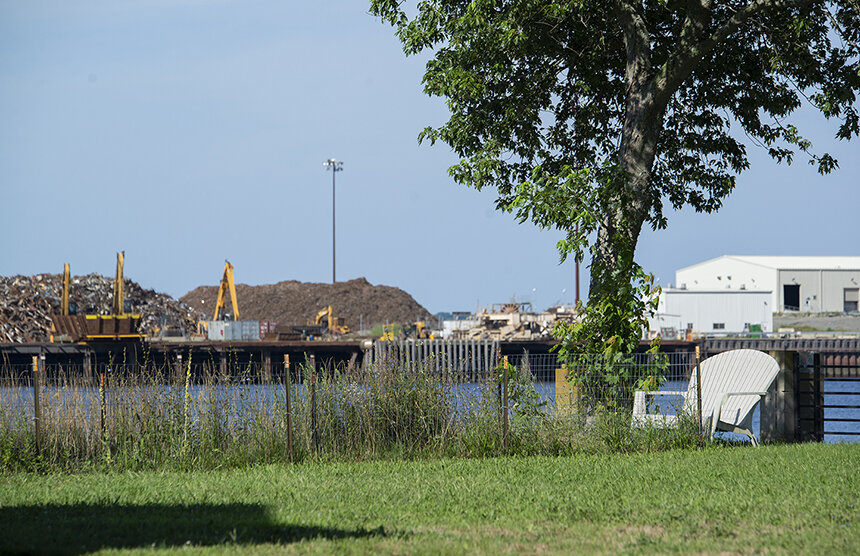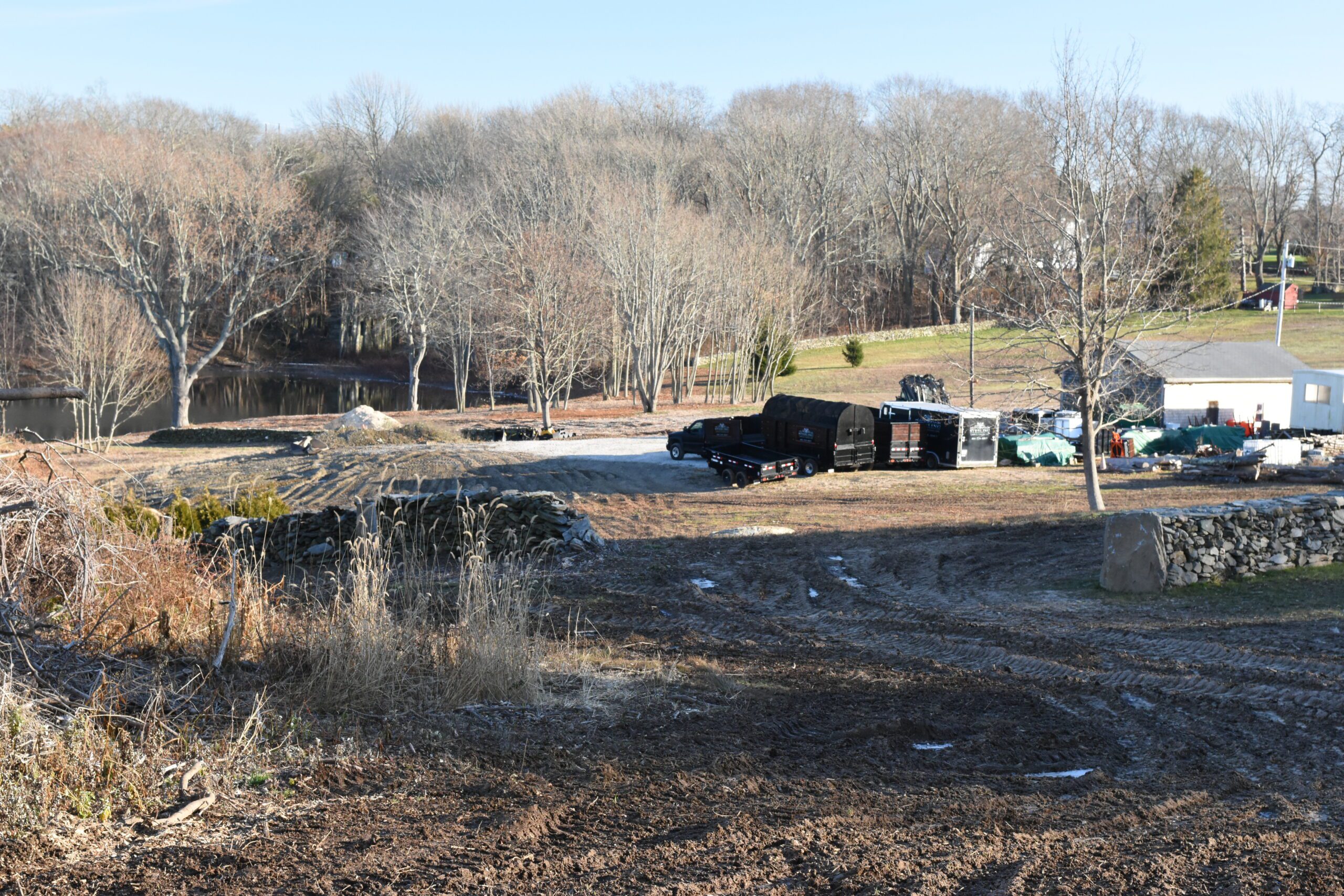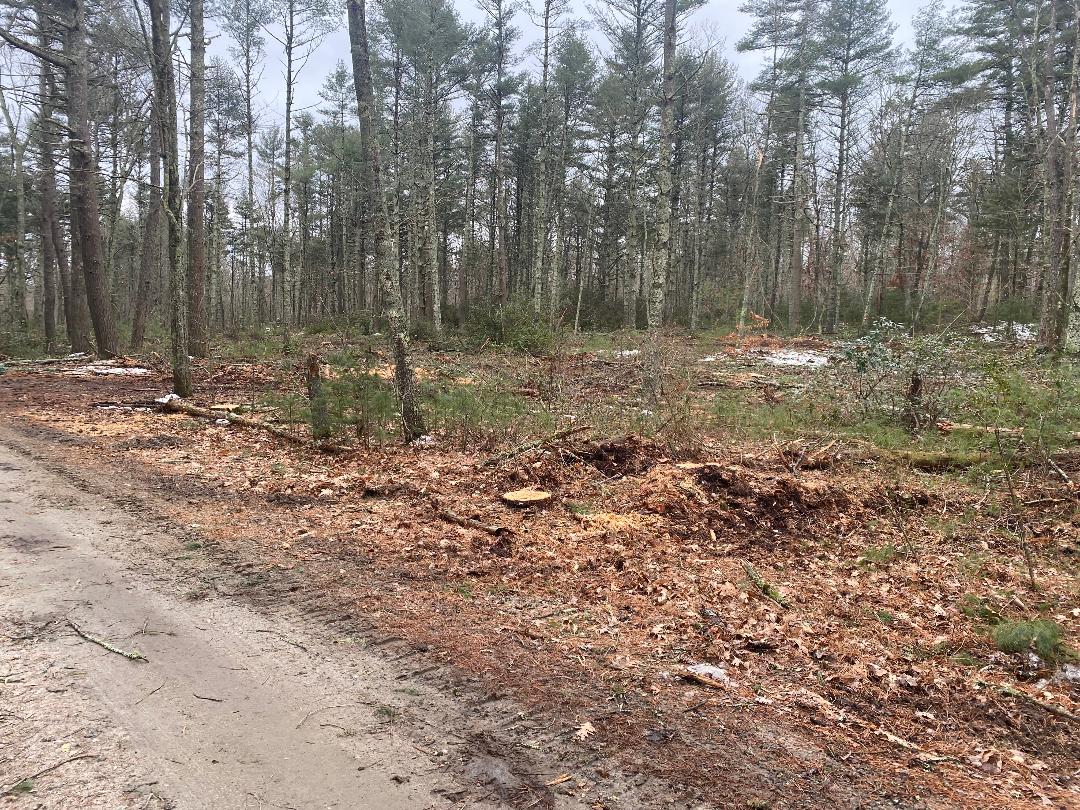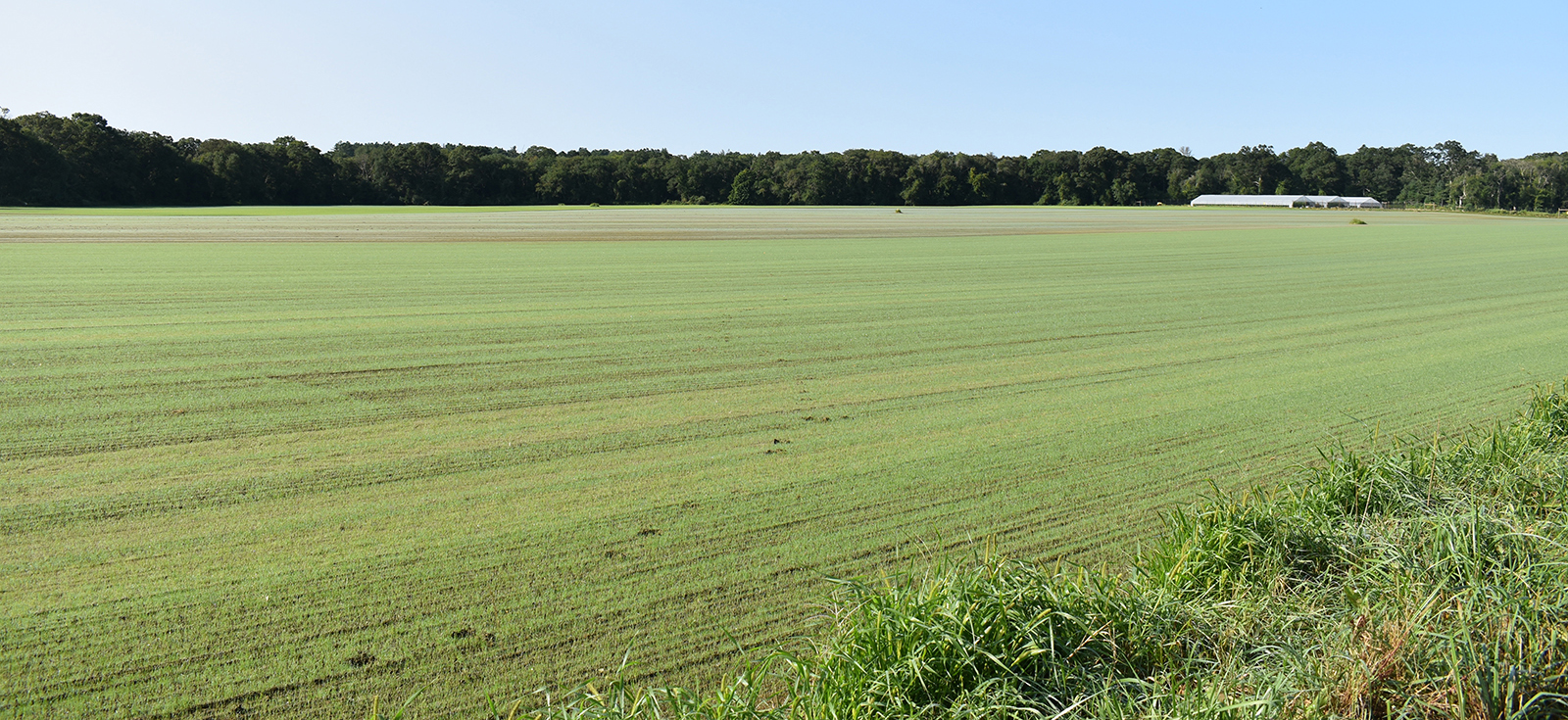Brayton Point Neighbors Fume Over Metals Recycling Operation
Crusade to clean up site of former coal-fired power plant crosses into Rhode Island
August 15, 2021
The two 500-foot-high towers — tall enough to dwarf every one of Providence’s buildings less than 20 miles away — crumbled to nothingness in less than a minute. Watch parties, clustered nearby on a cloudy day in April 2019, cheered and whooped as they watched the hulking symbols of New England’s last coal-fired power plant simultaneously implode.
NBC 10 News anchor Mario Hilario announced a “new era” for the small peninsula within the bounds of Somerset, Mass., home to Brayton Point Power Station since 1959.
New plans were in the works for Brayton Point, according to the Missouri-based site owner, Commercial Development Company Inc. (CDC), which bought the power plant in early 2018 from Texas-based Dynegy Inc., and operates on-site as Brayton Point LLC. The site, with its deepwater pier and remaining infrastructure, would be redeveloped to support the region’s growing offshore wind energy sector.
Today, the Brayton Point Commerce Center still advertises with the tagline, “From coal to wind.” And though coal no longer hangs heavy over Mount Hope Bay, residents in the area say it’s not quite the “new era” they were expecting.
Instead, site neighbors say they have entered a new kind of “nightmare.”
Neighbors say situation is worse
Back when the town of Somerset believed the site would turn to renewable energy, before the cooling towers came down, everybody was “pretty excited,” Jeff Kardel said.
But the Save Our Bay Brayton Point (SOBBP) president noted there were warning signs early on. Neighbors noticed a pile of scrap metal on the 307-acre site growing bigger by the day. A string of debris pile fires brought fire crews out multiple times. The Herald News reported town officials had made a “verbal agreement” with the Brayton Point Commerce Center to run a “light” metal recycling operation.
By the end of October 2019, concerned neighbors had organized via a social media and more than 1,500 had signed onto a petition to keep Mount Hope Bay from seeing another 50 years of pollution.
Kardel and any one of the group’s 4,000 other members say things only got worse from there, as Carver Maritime and Pangaea Logistics joined forces to form an on-site venture, Patriot Stevedoring & Logistics LLC, and the metal operation continued to grow.
Delayed wind operations
The delays in transitioning Brayton Point to the wind industry are, in part, related to the Trump administration’s pause on wind facility regulatory approval. And a deal is still on with Mayflower Wind to link power lines to Brayton Point’s existing power infrastructure. But after two years of constant concern, Kardel is less convinced of that eventuality and far warier of CDC’s promises.
“The more and more that we dug into the companies that are at play here, we started to realize that that wasn’t going to be the case,” Kardel said.
Earlier this year the Environmental Protection Agency (EPA) fined Patriot Stevedoring & Logistics $27,000 under the Clean Water Act for the unpermitted “discharging [of] scrap metal during loading operations between February and October 2020” into Mount Hope Bay. Residents say they regularly fish metal scraps and rusted fenders out of the water.
On windy days, they say, clouds of dust billow across the bay and over their houses, generating a barrage of video and photo evidence of the rust-colored particulates.
In 2020, independent consultant SAGE Environmental Inc. tested surrounding areas for “potential fugitive metal dust emissions” given off from the Brayton Point scrapping operation. Results showed measured dust concentrations exceeded the limit set by the EPA, with “episodic spikes” of dust concentration that were nearly three times the legal limit. Surface swabs also showed accumulations of heavy metals, including lead, barium, chromium, arsenic and mercury.
Adding fuel to the fire, truck traffic has increased on the facility’s sole access road. By Kardel’s count, nearly 150 trucks head down Brayton Point Road each day, trundling past a dozen homes, a playground and Wilbur Elementary School.
But it’s the sound of slinging scrap metal, akin to a “car crash hit,” Kardel said, that is driving most neighbors crazy.
It’s a 24/7 operation and “an absolute nightmare,” he said. Neighbors to the site, some of whom live 700 feet away and some who live across the bay, can’t sleep. Kids can’t sleep.
And the noise is reverberating across Mount Hope Bay and into Rhode Island.
“I thought that was thunder! I can hear it in my home with the windows closed in Bristol,” one Facebook post reads from mid-April, on a day with a strong easterly wind.
“The small crashes sounded like car accidents and the big crashes like thunder,” wrote another from Warren’s Seaview Avenue in May. “It literally turned my stomach thinking of how loud it was on BP.”

An “irresponsible” neighbor
SOBBP recognizes the reality that Brayton Point will likely always house commercial or industrial business. Kardel said the group knows Somerset “is suffering for tax base” after losing the largest tax generator in town: the power company. Many residents in the neighborhood grew up while the power plant was still in its heyday, or bought homes knowing Brayton Point wasn’t pristine wilderness. The community isn’t against industry point-blank.
“What we are against is irresponsible industrial business — that’s what we are against,” Kardel said. He noted the power plant at least respected its neighbors and worked to address the concerns brought its way.
“This new company doesn’t care,” Kardel said. “They’re there to sling metal.”
In a statement to ecoRI News, Brayton Point LLC said it is “committed to provide a platform for sustainable economic development at the Brayton Point Commerce Center, especially for renewable energy and offshore wind operations.”
“We believe our redevelopment plan will benefit the Town of Somerset, its neighboring communities, and the entire South Coast,” according to the statement. “We remain open to a constructive and fact-based dialogue with Somerset neighbors who may raise concerns.”
Cease-and-desist ordered
In addition to the pending EPA fines, the office of Massachusetts Attorney General Maura Healey has been investigating issues at the site related to state and federal environmental laws, according to a statement provided to ecoRI News by senior deputy press secretary Chloe Gotsis.
On May 11, the office sent a cease-and-desist notice to site owner Brayton Point LLC, facility operator Patriot Stevedoring & Logistics LLC and Eastern Metal Recycling-Terminal LLC, the company that ships scrap metal to the facility for recycling.
“Under federal law, we have to give 60 days’ notice to the prospective defendants prior to filing a lawsuit under the Clean Air Act and Clean Water Act,” according to the AG’s statement.
Now past the 60 days, SOBBP speculates a lawsuit is pending. But the attorney general’s office said, “We can’t comment any further at this time.”
Brayton Point LLC said a cease-and-desist order was issued, lifted and then re-instituted following appeals made to the Somerset Zoning Board, but noted it was “unable to make further comment at this time since the matter is in active litigation.”
To top things off, SOBBP said the original lease raises questions about the ownership of the site’s dock and the surrounding 12.5 acres. The lease, dating back to 1959, states that the parcel be leased to New England Power Service Company for 99 years, “for use in connection with a power plant which the Lessee proposes to construct.”
According to SOBBP and the town of Somerset, if power is no longer generated on-site, the property should revert to state ownership. The scrap metal pile, they say, is within the purview of the Massachusetts Department of Conservation and Recreation (DCR) and is not CDC’s to sublease.
As of July 2020, Massachusetts Gov. Charlie Baker told Commonwealth Magazine he was “not yet” convinced of the state’s ownership of the property, but was working to sort out who owned what.
In a recent statement to ecoRI News, DCR spokesperson Olivia Dorrance said, “The Department of Conservation and Recreation is aware of concerns regarding ongoing activities at Brayton Point, and is currently engaged in a review of the site history and associated requirements created for the property as part of its development.”
Brayton Point LLC said it holds a land lease with the commonwealth of Massachusetts for a small portion of the commonwealth-assigned “Mount Hope Bay Designated Port Area” and holds valid Chapter 91 licenses that support industrial water-dependent uses at the Brayton Point Commerce Center.
Cross-bay concerns
Last month the Somerset Board of Selectmen sent a letter asking Baker to assist in stopping the scrapping operation under the premise that it operates on state land.
“The State of Massachusetts is a landlord and your tenant is creating negative impacts in the Towns of Somerset, Swansea, and City of Fall River,” the letter read.
But Kardel is adamant that Brayton Point is not just a Somerset issue or a Massachusetts concern alone. “This is a regional issue,” he said.
In mid-July, on behalf of SOBBP, Kardel sent letters to the councils of the three Rhode Island towns circling Mount Hope Bay asking them to move to curtail CDC’s operations and support the group’s crusade by calling government officials in both states.
Tiverton has yet to respond, Kardel said, and Bristol hasn’t gotten around to adding the item to its Town Council meeting agenda. But on Aug. 10, Kardel made his case before the Warren Town Council.
“They came to our town and put on a giant dog-and-pony show about bringing wind power to Brayton Point,” Kardel said to the four present council members. “That has not happened. We don’t believe that is ever going to happen.”
“We are very grateful for your efforts and hope we can see some end to this,” Warren Town Council President Keri Cronin said after Kardel’s 10 minutes of speaking.
Council member Joseph DePasquale joined Cronin in ready support. But the town will have to tread carefully, he said, to steer clear of any legal quandaries or cross-state politics. He pushed to have the town solicitor, Anthony DeSisto, draft a letter to Rhode Island Gov. Dan McKee, Baker and both attorneys general in support of SOBBP “in the best interest that we can, legally.” The council passed the motion unanimously.
“We breathe the same air. We recreate in the same water,” Cronin said. “We all share the responsibility and concern for it.”




Hope to join SOBBP. What a great, detailed piece of journalism.
Most residents hate the noise and vibrations, yes: a 93-decibel spike at 4:00 A.M. will do that. But what scares the bejeezus out of everybody is the toxins in all these IMPORTED Hazardous Materials — and the fact that neither EPA Region 1 in Boston nor the Mass. Executive Office of Energy and Environmental Affairs cares what happens here. People can be throwing up in their bathtubs and passing out on the beach in their pj’s: this “Special Handling Site” will NOT get visited. Show them what will prove to be the leading edge of five days’ worth of videos and photos showing an oil slick to dwarf Copley Square, and they find a so-called “Licensed Site Professional” and US Coast Guard flunky to show up on Day 1, eyeball things, and parrot the resident spin doctor until the buzz fades: “Under ten gallons” and “stormwater.” (Yuh, RIGHT!) The Southeast Region Office at the Mass. Dept. of Environmental Protection Rackets and the Mass. Emergency Management Agency have a LOT to answer for, with the toxic grit cloud conspicuous from a mile off throughout the OFT-FATAL RESPIRATORY PANDEMIC. On average, CoVid-19 has hit our area harder than it’s hit any other: see senior columnist Yvonne Abraham’s cover feature in The Boston Globe: Danger Zone is central South Coast of Bristol County, which is comprised of Greater Fall River plus Greater New Bedford. It’s is by far the WORST sector in this state, no doubt due to the record airborne PCBs here before these crooks were invited in, only to be worsened by the toxins systematically jarred loose from their 200MM tons (sic.) of imported scrap metals. You name it, it’s here: heavy metals, toxic industrial coatings, the worst names known. Only Greater Lawrence has ever come close to our area’s CoVid rates, whether for transmissions, hospitalizations or deaths. And the Region 1 EPA thinks a $27K pinky-jab is “justified”?
THIS IS CRIMINAL NEGLIGENCE.